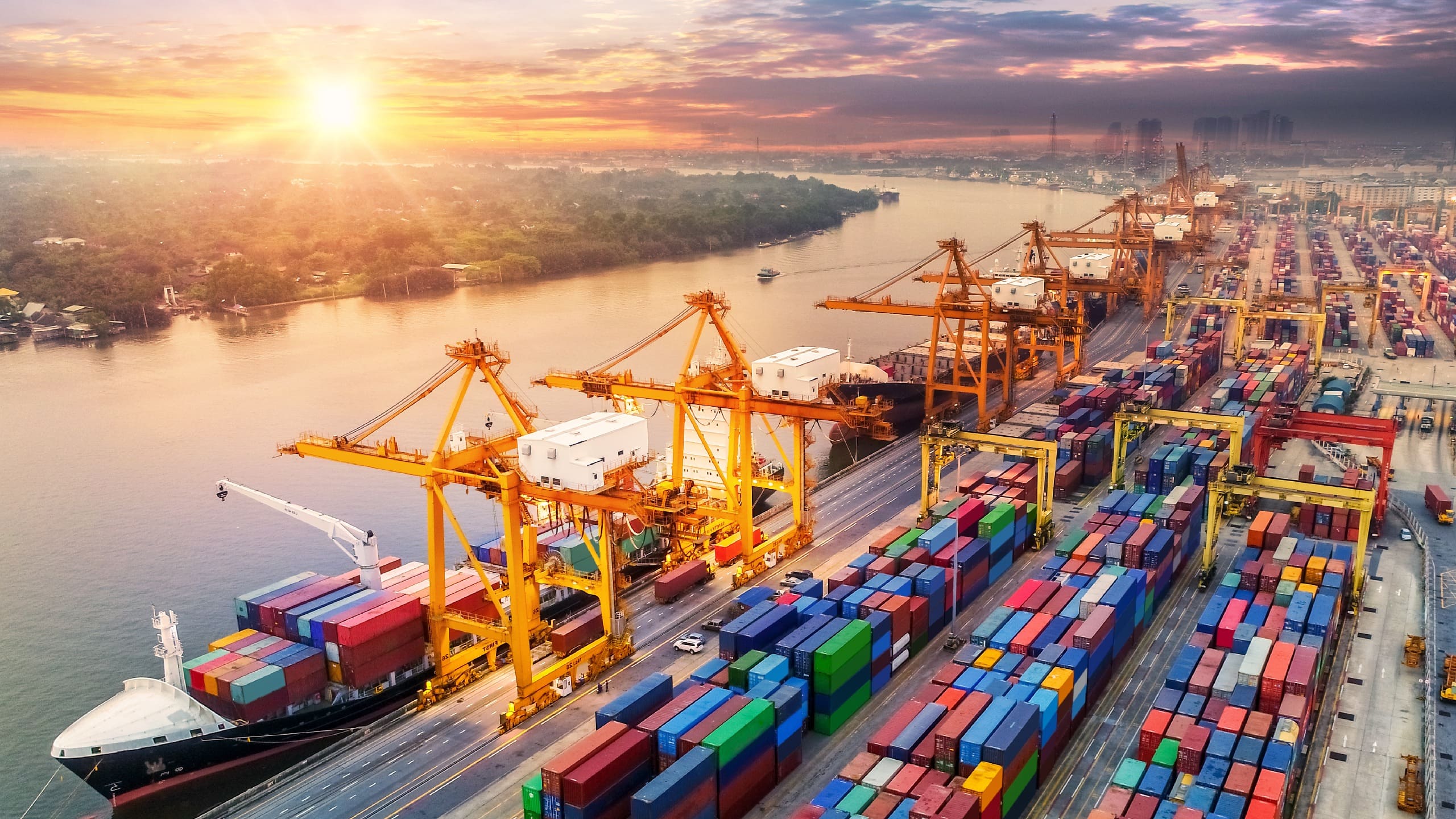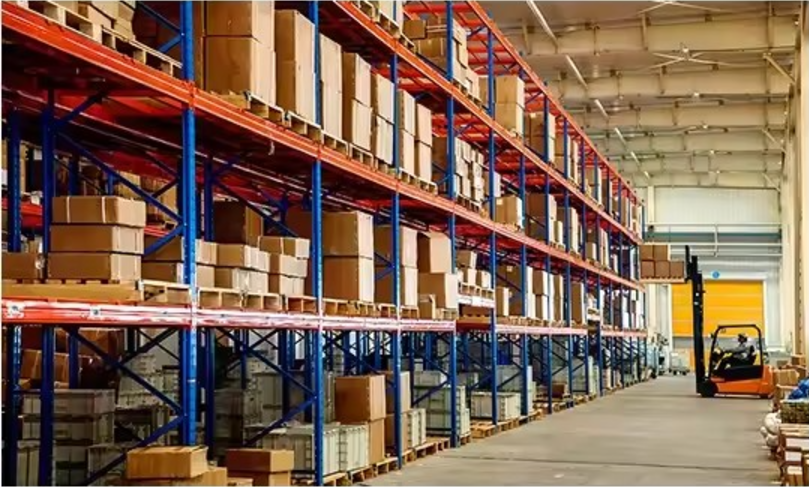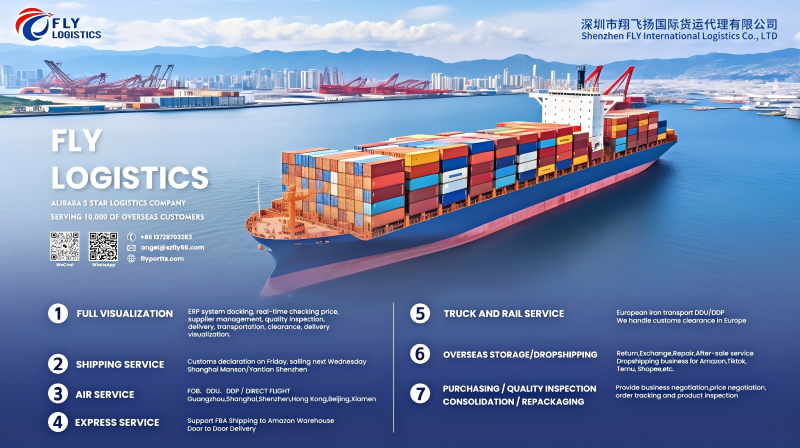In 2024, the global e-commerce market is projected to surpass $6 trillion in sales. Its rapid expansion is fueled by the pandemic-era shift in consumer habits, the rise of digital retail platforms, and evolving consumer expectations. The boom in online shopping has caused significant shifts in logistics and supply chain management, leading to the increased adoption of multimodal transport (MMT) solutions. Multimodal transport combines multiple modes of transportation—such as rail, road, air, and sea—into a single, seamless system and is increasingly recognized as a critical enabler of global e-commerce. With the demand for faster deliveries, cost-effective shipping solutions, and enhanced sustainability, MMT has become a cornerstone of logistics strategies for companies seeking to stay competitive in the global marketplace. As the e-commerce sector continues to flourish, the logistics industry is embracing the advantages of multimodal systems to meet new consumer expectations, streamline operations, and tackle the complexities of international trade.
The Rise of Multimodal Transport in Response to E-Commerce Growth
The e-commerce industry, fueled by the global shift towards online shopping, has changed the dynamics of international logistics. Consumers today expect faster delivery times, lower shipping costs, and greater flexibility in shipping options. These heightened expectations have put immense pressure on logistics providers to innovate and adapt. Multimodal transport has played a pivotal role in addressing these challenges, offering a flexible, cost-effective, and time-efficient solution that meets the demands of the e-commerce boom.
Multimodal transport involves using two or more different modes of transportation—such as trucks, trains, ships, and planes—under a single contract to move goods from the point of origin to the destination. By combining these transport methods, logistics companies can take advantage of each mode’s strengths while minimizing costs and delays. For example, goods may be shipped by sea for long distances to reduce costs and transported by truck for the final leg of the journey, ensuring timely delivery to the consumer.
This system is particularly beneficial for e-commerce businesses, which often deal with high volumes of goods that need to be transported quickly and efficiently across the globe. By using multimodal transport, companies can optimize their supply chains, improve delivery speed, and reduce overall transportation costs.
Benefits of Multimodal Transport in E-Commerce
Cost-Effectiveness
One of the main reasons that multimodal transport has become such a critical component of global e-commerce logistics is its potential to reduce shipping costs. By combining the strengths of different transport modes, businesses can take advantage of cheaper options for long-haul journeys (such as sea or rail) while maintaining faster, more expensive options for short-distance shipping (such as air or road transport). For example, a company might ship goods by sea from China to Europe and then use air freight for delivery within Europe to reduce overall transportation costs without sacrificing delivery time.
Flexibility and Scalability
Multimodal transport is inherently flexible. It allows businesses to scale their operations quickly in response to market demands, seasonal fluctuations, or unexpected disruptions. This flexibility is crucial for e-commerce businesses that need to adjust to shifting demand and supply chain disruptions. The ability to switch between different transportation modes means that companies can continue to meet customer expectations even in challenging circumstances, such as natural disasters, strikes, or geopolitical tensions.
Faster Delivery Times
The integration of air freight in multimodal solutions has significantly improved delivery times for e-commerce businesses. While air transport is more expensive, it offers unmatched speed, which is essential for companies looking to compete in the “race to next-day” or “same-day” delivery services. When combined with slower, more economical modes of transport for long-distance shipping, multimodal transport enables e-commerce companies to balance cost and speed effectively.
Environmental Sustainability
As consumer awareness of environmental issues continues to grow, businesses are under increasing pressure to reduce their carbon footprint. Multimodal transport offers an opportunity to meet these sustainability goals by utilizing greener modes of transport. Rail and sea freight, for instance, are far more environmentally friendly than road or air freight, with significantly lower carbon emissions. By adopting a multimodal approach, e-commerce businesses can reduce their environmental impact while still ensuring timely and cost-effective deliveries.

Multimodal Transport: Enhancing Supply Chain Resilience
The COVID-19 pandemic highlighted vulnerabilities in global supply chains, with disruptions causing delays, stock shortages, and widespread uncertainty. In response, companies have turned to multimodal logistics to increase resilience and adaptability. By diversifying the transportation modes used in their supply chains, businesses can reduce their reliance on any single method of transportation and ensure continuity even in the face of disruptions.
For example, during the early months of the pandemic, many air cargo networks were significantly impacted due to restrictions and the grounding of passenger flights. Companies that relied solely on air transport for international shipments faced severe delays. However, those that integrated sea freight and rail options into their multimodal logistics networks were able to maintain more reliable shipping schedules, even as air transport capacity dwindled.
Moreover, the use of multimodal transport also allows companies to navigate logistical bottlenecks more effectively. With the global shipping industry facing increasing port congestion and delays, using rail or road transport as an alternative to congested maritime routes has proven beneficial for many businesses.
The Role of Technology in Multimodal Transport
To maximize the benefits of multimodal transport, many e-commerce businesses are turning to technology to streamline and optimize their logistics operations. Digital platforms, such as Transport Management Systems (TMS), help companies manage their multimodal operations by offering real-time tracking, route optimization, and improved visibility across the entire supply chain. These platforms also allow businesses to monitor performance, make adjustments when necessary, and ensure that their logistics networks remain efficient and cost-effective.
Furthermore, AI and machine learning technologies are being increasingly used to predict demand patterns, optimize shipment schedules, and identify the most cost-effective and efficient transport modes. This not only helps reduce costs but also minimizes the environmental impact of e-commerce logistics by ensuring that goods are delivered using the most appropriate and sustainable methods.
Looking to the Future: The Continued Growth of E-commerce and Multimodal Transport
As e-commerce continues to evolve and expand, multimodal transport will remain a critical tool for meeting the ever-increasing demands of global consumers. The ongoing development of transportation infrastructure, coupled with advancements in technology, will further enhance the efficiency and sustainability of multimodal logistics networks.
In conclusion, multimodal transport is not just an operational strategy—it is a key enabler of the global e-commerce boom. By offering cost-effective, flexible, and environmentally sustainable shipping solutions, it allows e-commerce businesses to meet the evolving demands of modern consumers. As the world continues to embrace the digital shopping revolution, multimodal transport will play an increasingly central role in shaping the future of logistics and supply chain management.
FLY LOGISTICS is a professional multimodal transport service provider. We tailor the most suitable logistics solutions for our customers to ensure that the goods arrive at their destination safely and efficiently. By choosing FLY LOGISTICS, you will enjoy a worry-free international shipping experience and help your business flourish globally. Let us be your reliable partner in international logistics to ensure your road to success.





